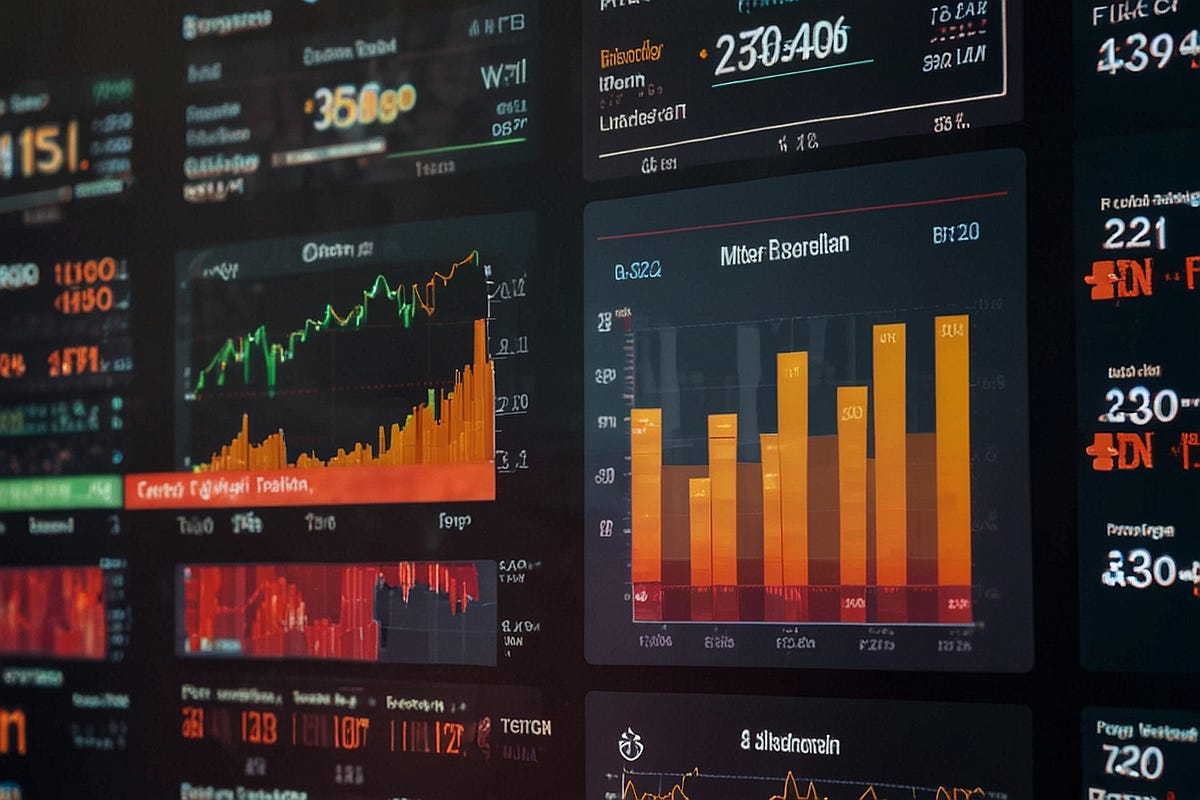In the dynamic world of financial markets, staying ahead of trends is crucial for investors, traders, and businesses. For this reason, platforms like FintechZoom have gained significant attention. FintechZoom offers market analysis, news, and predictions related to global financial trends, cryptocurrencies, stocks, and more. As a result, investors increasingly turn to this platform for insights that could shape their decision-making. But just how accurate are FintechZoom.com market predictions? In this article, we’ll dive deep into the platform’s forecasting methods, its successes, and its potential shortcomings.
The Rise of FintechZoom: A Trusted Source for Market Predictions
FintechZoom is a digital platform designed to provide financial news and market analysis. It covers a broad spectrum of topics, from stock market reports and investment advice to cryptocurrency updates and fintech innovations. The platform claims to provide real-time data and predictions based on in-depth research, using a mix of artificial intelligence (AI), data analytics, and expert opinions.
Many users are drawn to FintechZoom for its ability to provide predictions on various markets, with an emphasis on delivering insights into the ever-changing world of stocks, bonds, and digital currencies. As the fintech industry continues to grow and evolve, it’s only natural that people seek guidance from reliable platforms like FintechZoom, but the accuracy of their predictions remains a topic of debate.
Understanding the Tools Behind Market Predictions
To evaluate the accuracy of FintechZoom’s market predictions, we first need to understand the tools and methods the platform uses for forecasting. Typically, prediction models in financial markets employ a combination of quantitative data analysis and qualitative research. The most common tools used include:
- Artificial Intelligence (AI) and Machine Learning (ML): AI and ML algorithms can analyze massive datasets, recognize patterns, and predict future market trends. By analyzing historical data, trading volumes, and other variables, these algorithms can provide predictions based on the most relevant data available.
- Expert Analysis and Opinion: In addition to AI-driven tools, FintechZoom also integrates expert opinions from financial analysts and market professionals. These experts offer qualitative insights, such as sentiment analysis, technical analysis, and macroeconomic factors, which can influence predictions.
- Real-Time Data Feeds: Financial markets are constantly changing, so accurate predictions depend heavily on access to up-to-the-minute data. FintechZoom uses real-time data feeds to track market changes, news events, and other developments that can impact market performance.
The Success Stories: Instances Where FintechZoom.com Predictions Have Been Accurate
While financial predictions are inherently uncertain, FintechZoom has made several accurate calls in the past, which have garnered attention. These instances show that the platform’s methods do have the potential to produce reliable insights.
- Stock Market Predictions: One notable success story comes from its stock market coverage. For instance, FintechZoom predicted the rise of certain stocks in industries like electric vehicles (EV) and tech prior to significant growth. Their prediction of stocks like Tesla and Amazon’s continued growth resonated with many investors, earning the platform praise for its ability to analyze trends effectively.
- Cryptocurrency Predictions: Cryptocurrencies are among the most volatile assets, and predictions in this space are difficult to make. However, FintechZoom has been relatively accurate when predicting the rise of major digital currencies such as Bitcoin, Ethereum, and newer altcoins. For example, their early predictions of Bitcoin’s price surge in 2020-2021, based on data analysis and market trends, were largely correct.
- Market Analysis During the COVID-19 Pandemic: During the onset of the COVID-19 pandemic, FintechZoom accurately predicted the market downturns in early 2020. By analyzing economic indicators and considering the broader implications of the pandemic on global markets, the platform foresaw significant disruptions and issued predictions that guided investors through volatile periods.
These successes demonstrate that FintechZoom can, at times, offer accurate and insightful predictions based on a combination of tools and analysis. The use of AI, expert analysis, and real-time data certainly plays a key role in its ability to track and forecast market movements.
The Challenges of Market Predictions: Why Accuracy is Never Guaranteed
Despite these successes, it’s important to recognize that market predictions are inherently difficult. No platform, including FintechZoom, can guarantee 100% accuracy when forecasting market trends. Several factors contribute to this uncertainty:
- Market Volatility: Financial markets are often unpredictable, especially in times of crisis or rapid innovation. Events like natural disasters, political instability, or technological breakthroughs can drastically change the direction of a market, making predictions less reliable.
- Human Behavior: Financial markets are driven not just by data, but also by human emotions—fear, greed, speculation, and sentiment. These unpredictable human factors are difficult to quantify and can cause market movements that deviate from expectations.
- External Variables: Unforeseen events, such as geopolitical crises, pandemics, or sudden changes in monetary policy, can throw market predictions off course. In 2020, for example, the COVID-19 pandemic led to unforeseen market crashes, defying even the most well-researched predictions.
- Data Limitations: While AI and machine learning are powerful tools, they are not foolproof. Algorithms rely on historical data and assumptions, which may not always hold true under changing market conditions. The accuracy of predictions diminishes when data is incomplete or unreliable.
Evaluating the Reliability of FintechZoom’s Predictions
Given the challenges faced by any platform attempting to predict the future of financial markets, it’s important to critically evaluate the reliability of FintechZoom’s predictions. Here are some key factors to consider:
- Track Record: While FintechZoom has made accurate predictions in the past, its overall track record should be evaluated across a broader range of markets and time periods. Investors should look at long-term results rather than short-term successes.
- Transparency: How transparent is FintechZoom about its prediction models? Are the data sources and methodologies clearly explained? Transparency is crucial for understanding the limitations of any prediction model and ensuring that users are making informed decisions.
- Risk Mitigation: It’s important to recognize that no platform can eliminate the risk of loss in investing. Even when predictions are accurate, unforeseen market shifts or incorrect assumptions can lead to losses. A responsible platform should provide risk management strategies alongside predictions.
- User Experience: User feedback can also provide insights into the accuracy and usefulness of FintechZoom’s predictions. Reviewing testimonials and analysis from a variety of investors can help gauge the platform’s credibility.
Conclusion
In conclusion, while FintechZoom’s market predictions can be accurate and insightful, especially when analyzing trends in stock markets, cryptocurrencies, and global financial events, they are not without limitations. The accuracy of market predictions depends on numerous factors, from AI-driven data models to unpredictable human behaviors and external crises.
For investors, the key takeaway is to treat predictions—whether from FintechZoom or any other platform—as part of a broader investment strategy. Relying solely on predictions without considering risks, market volatility, and diversified approaches may lead to undesirable outcomes. Ultimately, while FintechZoom’s predictions may offer a helpful guide, they should be used alongside other research tools and expert opinions to make well-informed decisions.



